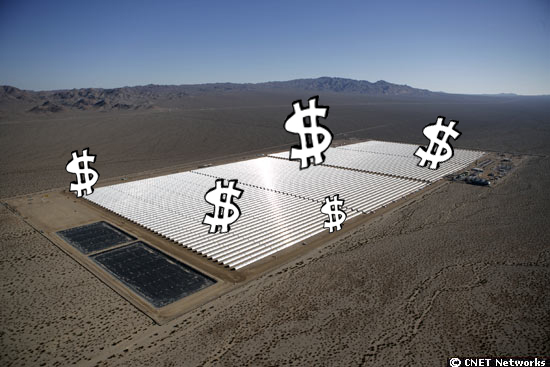For many reasons, solar power is growing rapidly in many states across the United States. Among these reasons are:
Solar power produces almost no pollution
The amount of pollution produced by solar panels is significantly less than the amount of pollution produced by other power sources. For example, these days carbon dioxide is one of the most talked about atmospheric pollutants. Even though carbon dioxide is a natural part of the atmosphere, in recent years, we as humans have began to overwhelm the earth's eco system to the point where carbon dioxide has begun to reach toxic levels. We introduce carbon dioxide into the atmosphere in many ways, but one of the primary ways is via burning woods or fossil fuels for heating. Solar panels do not emit carbon dioxide and when we replace traditional energy sources such as wood or fossil fuels with solar panels, we decrease the amount of carbon dioxide that we introduce into the atmosphere.
panels is significantly less than the amount of pollution produced by other power sources. For example, these days carbon dioxide is one of the most talked about atmospheric pollutants. Even though carbon dioxide is a natural part of the atmosphere, in recent years, we as humans have began to overwhelm the earth's eco system to the point where carbon dioxide has begun to reach toxic levels. We introduce carbon dioxide into the atmosphere in many ways, but one of the primary ways is via burning woods or fossil fuels for heating. Solar panels do not emit carbon dioxide and when we replace traditional energy sources such as wood or fossil fuels with solar panels, we decrease the amount of carbon dioxide that we introduce into the atmosphere.
Solar power saves you money
The upfront purchasing and installation cost for solar panels on the typical home is currently more than the cost of equivalent traditional energy appliances such as radiators, hot water heaters, and so on. Things are changing however as recent advances in solar panel technology not only make them cheaper to produce but also increase their kilowatt output efficiency. This means that even though the initial upfront investment costs may be higher for solar panels, the long term payback in energy saving will be more dramatic and occur at a quicker rate than ever before. If you want to free yourself from the spiraling costs of oil and gas, now may well be the perfect time to take a new look at the solar technologies available in your city and state.
Solar power tax credits helps to save you even more money
Few people know this but in 2005 congress passed the Energy Policy Act which gives a 30-percent tax credit to any home that purchased residential solar water heating, photovoltaic equipment, or fuel cell properties. The law has since been extended to the end of 2008 and will potentially be extended again.
In addition, many states offer their own tax credits to homeowners and businesses. Massachusetts, for example, offers tax incentives to individuals and business that install renewable energy systems at their homes or offices. The state of Oregon's Business Tax Credit, under certain conditions, covers up to 50% of the solar system cost. More states are climbing on the solar power bandwagon every year so it's definitely worth your while to not only take advantage of the federal tax credits but also check if there are state or local tax credits available to you as well.
Solar power panels are virtually maintenance free
Solar panels, in general, have less moving parts than traditional energy appliances so there's less to go wrong. Typically, once a year you'll have to do a visual inspection, but for the most part, assuming that you've purchased quality panels, once the solar panels are in place, there's not much you have to do to maintain them - estimates range to less than 20 hours a year.
It's been a long road getting here, but solar power is finally coming into its own. And not a moment too soon, because we can no longer afford the energy sources of the last century.
About the Author: John Kuzniar is a freelance writer who writes articles relating to solar power benefits and other energy saving resources and tips. Visit his site at http://www.solarpowerfamily.com .
Solar Power Tax Credits Help Their Affordability
subjects:
saving energy,
solar energy,
solar power
Subscribe to:
Post Comments (Atom)
1 comment:
Great article! thanks for sharing.
Residential Solar Energy
Solar Albuquerque
Post a Comment